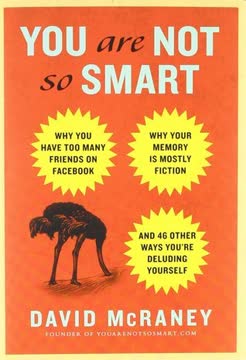Key Takeaways
1. Wisdom transcends knowledge and requires direct experience
"Knowledge is intellectual, wisdom is intuitive. Knowledge is of the head, wisdom is of the heart."
Head vs. Heart: Wisdom goes beyond mere accumulation of information. It involves a deep understanding that comes from personal experience and intuition. Unlike knowledge, which can be acquired through study, wisdom emerges from direct engagement with life.
Experiential Learning: True wisdom cannot be taught in a conventional sense. It requires one to immerse themselves in life's experiences, reflecting on them, and deriving insights. This process involves not just the intellect, but also the emotions, intuition, and the entirety of one's being.
Transformation: While knowledge can inform, wisdom has the power to transform. It changes not just what we know, but who we are. This transformation is the hallmark of true spiritual growth and understanding.
2. True spirituality embraces the whole of existence
"God is not a person. God is all that is the case. God is existence."
Holistic View: Authentic spirituality does not reject any aspect of existence. It recognizes the divine in all things, from the mundane to the extraordinary. This perspective eliminates the artificial divide between the sacred and the profane.
Beyond Dualism: True spirituality transcends the dualistic thinking that separates the world into good and evil, spiritual and material. It sees the interconnectedness of all things and embraces the totality of life.
Everyday Sacredness: This understanding brings a sense of sacredness to everyday life. Every action, every moment becomes an opportunity for spiritual practice and growth. It eliminates the need for escape from the world and instead encourages full engagement with life.
3. Meditation is the key to self-discovery and inner transformation
"Meditation means to watch the movement of thoughts in the mind."
Witnessing Consciousness: Meditation, at its core, is about developing a witnessing consciousness. It involves observing one's thoughts, emotions, and sensations without judgment or interference.
Inner Alchemy: Through consistent practice, meditation leads to a profound inner transformation. It helps in:
- Reducing mental chatter
- Increasing self-awareness
- Developing emotional stability
- Enhancing clarity of perception
- Cultivating a sense of inner peace
Gateway to Being: Ultimately, meditation is a gateway to experiencing one's true nature beyond the confines of the ego. It allows one to touch the depths of being that are usually obscured by the constant activity of the mind.
4. Love and compassion are the essence of enlightened living
"Compassion is not addressed to anybody. It is simply your very being."
Universal Love: Enlightened living is characterized by a love that is not limited to individuals or groups. It's a state of being that radiates compassion to all of existence without discrimination.
Beyond Ego: This love transcends the ego's need for reciprocation or recognition. It flows naturally, without effort or expectation, as an expression of one's true nature.
Transformative Power: Love and compassion have the power to:
- Dissolve boundaries between self and others
- Heal psychological wounds
- Create harmony in relationships
- Inspire selfless action for the benefit of all beings
5. The ego is the main obstacle to spiritual growth
"The ego is always in search of fight. If you cannot find anybody to fight you will feel very miserable."
Nature of Ego: The ego is the false sense of self that is constructed through identification with thoughts, emotions, and experiences. It thrives on separation, comparison, and conflict.
Barrier to Truth: The ego acts as a veil that obscures our true nature. It creates:
- Illusions of separateness
- Fear and insecurity
- Constant need for validation and achievement
- Resistance to change and growth
Transcending Ego: Spiritual growth involves recognizing the illusions created by the ego and gradually loosening its grip. This doesn't mean destroying the ego, but rather seeing through its machinations and not being controlled by it.
6. Enlightenment is a state of being, not a goal to be achieved
"You are already a buddha, you are already enlightened – you have only to recognize it."
Present Reality: Enlightenment is not something to be attained in the future. It is the recognition of our true nature that is always present, here and now.
Removing Obstacles: The spiritual journey is not about adding something to ourselves, but rather removing the obstacles that prevent us from seeing our inherent enlightened nature. These obstacles include:
- Conditioned beliefs and thoughts
- Emotional baggage
- Identification with the ego
- Attachments and aversions
Spontaneous Living: An enlightened state is characterized by spontaneous, effortless living in harmony with the flow of existence. It's a state of being where there's no separation between the observer and the observed.
7. The path to truth requires courage and authenticity
"Be true to your changing self, because that is the only reality."
Embracing Change: The path to truth involves embracing the ever-changing nature of reality, including our own selves. It requires the courage to let go of fixed ideas and identities.
Authenticity: Being true to oneself means:
- Facing one's fears and insecurities
- Questioning societal norms and conditioned beliefs
- Expressing one's genuine thoughts and feelings
- Living in alignment with one's deepest values
Continuous Exploration: The journey to truth is an ongoing process of exploration and discovery. It demands a willingness to constantly examine one's beliefs and assumptions, and to remain open to new insights and perspectives.
8. Balancing the material and spiritual aspects of life is crucial
"A man must be materialist and spiritualist. To choose is fatal. There is no need to choose; you can have both the worlds – you should have both the worlds; that is your birthright."
Integrated Living: True spirituality doesn't negate the material world. It seeks to integrate the material and spiritual aspects of life into a harmonious whole.
Avoiding Extremes: Balance involves:
- Appreciating the physical world without being attached to it
- Pursuing spiritual growth without rejecting worldly responsibilities
- Finding the sacred in the ordinary
- Using material resources for spiritual and social welfare
Wholeness: This balanced approach leads to a sense of wholeness and fulfillment. It allows one to fully engage with life while maintaining inner peace and spiritual awareness.
9. The universe is a harmonious cosmos, not a chaotic void
"Existence is not a chaos but a cosmos. Pythagoras has contributed much to human thought, to human evolution. His vision of a cosmos became the very foundation of scientific investigation."
Underlying Order: The universe, despite its apparent chaos, operates according to inherent laws and principles. This understanding forms the basis for both scientific inquiry and spiritual exploration.
Interconnectedness: The cosmic order implies:
- Interconnectedness of all phenomena
- Cause-and-effect relationships governing events
- Potential for discovering universal truths
- Possibility of aligning oneself with cosmic principles
Harmony and Purpose: Recognizing the cosmos instills a sense of meaning and purpose. It suggests that our individual lives are part of a larger, harmonious whole.
10. True religion is beyond rituals and dogmas
"Religion has to be lived, not practiced. It has to become your love, not your discipline."
Living Spirituality: Authentic religion is not about following set rituals or adhering to rigid dogmas. It's about living with awareness, love, and compassion in every moment.
Beyond Forms: True spirituality transcends:
- Organized religions and their structures
- Ritualistic practices and ceremonies
- Intellectual concepts and beliefs
- Moral codes and commandments
Direct Experience: The essence of religion lies in direct, personal experience of reality. It involves:
- Cultivating inner silence and awareness
- Developing love and compassion for all beings
- Living in harmony with the natural flow of existence
- Realizing one's true nature beyond the ego
Last updated:
Review Summary
Meetings with Remarkable People receives mostly positive reviews, with readers praising Osho's insights into spiritual figures and philosophies. Many appreciate the book's exploration of diverse thinkers from different cultures and eras. Some readers find it enlightening and thought-provoking, while others disagree with certain ideas presented. The book is praised for its writing style and ability to introduce readers to lesser-known spiritual figures. However, some criticize it for potentially challenging religious beliefs or presenting controversial viewpoints.
Similar Books









Download PDF
Download EPUB
.epub digital book format is ideal for reading ebooks on phones, tablets, and e-readers.














